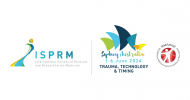Agenda
Chair: Mario Giraldo
Chairperson introduction
Mario Giraldo
Concepts for the understanding of heterogeneity in studies of diagnosis prognosis, treatment, or rehabilitation. Examples of published articles are presented with the respective analysis
Mario Giraldo
Practical exercises to analyse the evidence and to present the examples of the diverse spectrum of patients, treatments, modifiers, or interaction factors
Attendees
Discussion: analysis of the exercises and the implications for everyday regular clinical practice, research or medical education
Mario Giraldo
Closing remarks
Mario Giraldo
Session outline
The idea of one law that explains a phenomenon is a rooted heritage of the Modernism, from Newton to nowadays. Therefore, we may believe in standard patients, standard diagnosis or standard treatments, but several disappointments may come to the clinician’s desk when the patients do not completely respond to treatments or rehabilitation and come back with non-healed ongoing complains.
Physicians require training to overcome this problem that has been named in the last decades as “heterogeneity”. A new understanding of the phenomena has raised to highlight that we are in front of a diverse subgroup of diseases, treatments and research methods that may explain the heterogeneity and could be blurred to the eyes of the clinicians. This short workshop is addressed to train the attendees to practice the way to analyse the evidence and update knowledge to bring a more individualized rehabilitation and treatments by the identification of the several factors that make an individual as different as another one although they suffer from the same disease.
From the research design to the analytical methods that are presented with several already published examples, the attendees will be able to identify the ways to search for evidence towards a more individualized medicine or rehabilitation. The examples will include metanalysis, randomized controlled trials or observational studies and the methods will include the subgroup analysis, the regression models, cluster analysis, interaction, or modification of the effects. Clinicians need to be aware that diversity is published under scientifical well-defined methods that may be available for the update of the evidence, so patients may receive better adjusted treatments to their particularities.
Learning outcomes
This short workshop is addressed to train the attendees to practice the way to analyse the evidence and update knowledge to bring a more individualized rehabilitation and treatments by the identification of the several factors that make an individual as different as another one although they suffer from the same disease.
From the research design to the analytical methods that are presented with several already published examples, the attendees will be able to identify the ways to search for evidence towards a more individualized medicine or rehabilitation. The examples will include metanalysis, randomized controlled trials or observational studies and the methods will include the subgroup analysis, the regression models, cluster analysis, interaction, or factor modification. Clinicians need to be aware that a diverse spectrum of patients with the same disease are published under scientifical well-defined methods that may be available for the update of the evidence, so patients may receive better adjusted treatments to their particularities.
Target audience
- Medical practitioners
- Students
- Trainees
- Nursing staff



